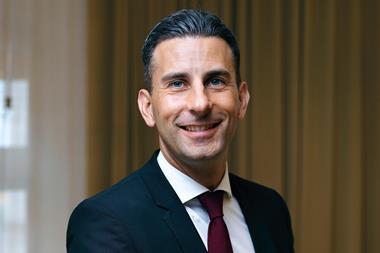‘How to tackle Germany’ occupied much conversational space at recent conferences. The Investment Act and the Investment Tax Act, which came into force on 1 January this year, brought hedge funds onshore for the first time, enabling an investor base already familiar with hedge fund index certificates to have direct contact with the underlying products.
Most of the activity thus far has come from German institutions, though US mutual fund giant Fidelity has joined a list of local players planning to exploit the newly favourable conditions. Fidelity has announced it will launch a German investment fund company, and products including hedge funds in the second half of 2004.
Funds of funds, on the other hand, can be both established and publicly marketed onshore, and are planned by Union, the asset management firm of the co-operative banking sector, the asset management arms of well-known international banks such as Dresdner, Deutsche Bank, and Commerzbank, and also DEKA, the asset management arm of the savings and loan sector.
DWS intends to launch both funds of funds and single manager hedge funds. In a model also to be pursued by other providers with international banking parents, the fund of hedge funds will be sub advised by Deutsche Bank’s global hedge funds team DB Absolute Return Strategies (Summit, NJ). The target products will consist of internally managed single hedge funds and hedge funds sub-advised DB ARS. As the hedge fund universe in Germany evolves, DWS also hopes to find “interesting third-party hedge funds” for its fund of funds.
DWS also hopes to establish locally-managed single manager funds. DeAM (Deutsche Asset Management)/DWS will offer its clients both hedge funds domiciled in onshore Germany managed by DWS, and hedge funds domiciled offshore managed by DB ARS. It also has plans to develop products specifically for the institutional market.
The focus on in-house funds stems from the reporting restrictions placed on underlying hedge funds, which Tom Albert, vp head of product management (mutual funds) with Credit Suisse Asset Management in Frankfurt, says restricts the way a fund of funds chooses its underlying funds. However, there are a handful of single managers which managed to operate onshore under the old regime, and who are now considering how to tackle the new German platform.
Robert Bierich of global macro managers Arsago already has a family offices and banks audience for its existing German special purpose vehicle-type arrangement and Cayman Islands fund, and is considering adding a German platform. “We don’t expect a huge amount of local inflows in year one,” he says.
Sy Schlueter of single long/short European equity manager Copernicus adds, “There is a natural flow in the place where you are located. They have levelled the playing field now. We can turn that into an advantage, especially for the novice hedge fund investor.”
CSAM is establishing a new umbrella to tackle the German market, and will also farm out fund selection for its (single strategy) funds of funds to a specialist department in New York. The company will have to pick from a universe of funds that meet German regulatory and tax reporting requirements. An underlying hedge fund must be willing to provide all dividend information to the fund of funds, including interest rates used, and capital gains from futures trading. “Not all hedge funds are willing to provide that information. Some will, but those that are almost closed, or the really good hedge funds might not,” says Albert. “The perception for 2004/5 is that the industry will start with a comparably smaller universe from which they can select.”
CSAM’s first two products will be single strategy funds of funds, both of which will be domiciled (and administered) in Luxembourg and then passported for German distribution. One will be a more aggressive global long/short fund with a substantial market correlation. The other will be a conservatively managed fixed income arbitrage fund with a lower market correlation. Each will be diversified among 35-40 managers. There will be no multi-strategy funds to begin with. The next product rollout will be a passively managed pass-through product based on the Tremont 60 Index.
The products will be developed initially for individual investors, with an institutional share class following behind. “Under the Luxembourg umbrella it’s easy to do a second share class,” he says. “Whether we actually use it will depend on demand.”












